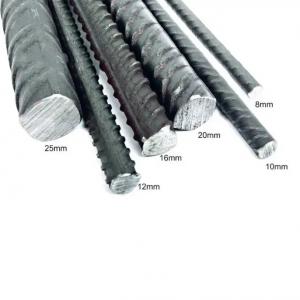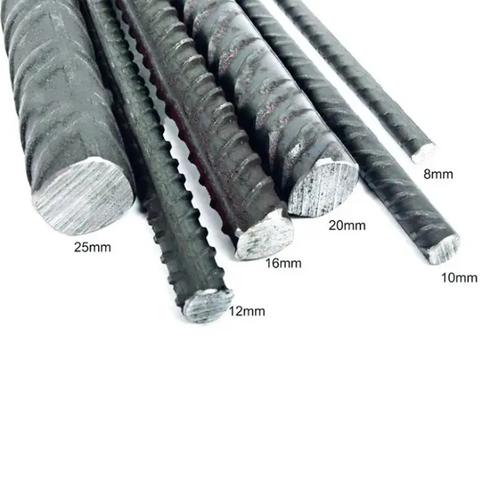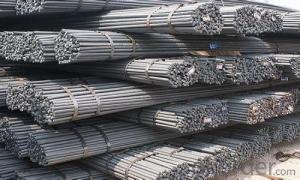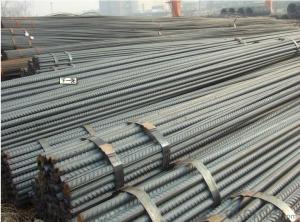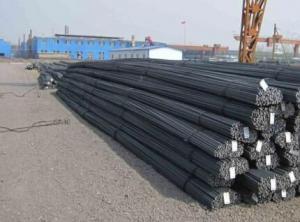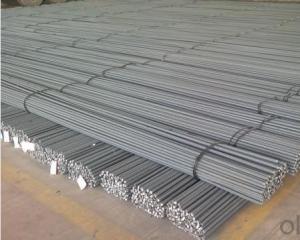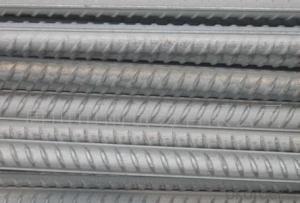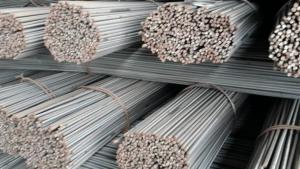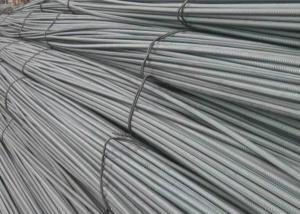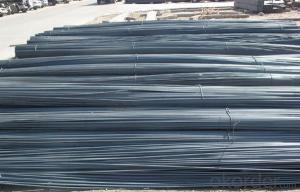TMT bar deformed bar reinforcing steel bar steel rebar
- Loading Port:
- Tianjin
- Payment Terms:
- TT OR LC
- Min Order Qty:
- 25 m.t.
- Supply Capability:
- 200000 m.t./month
OKorder Service Pledge
Quality Product, Order Online Tracking, Timely Delivery
OKorder Financial Service
Credit Rating, Credit Services, Credit Purchasing
You Might Also Like
Specification
Standard:
ASTM,GB
Technique:
Hot Rolled,Cold Drawn,Extruded
Shape:
rebar
Surface Treatment:
Black
Steel Grade:
HRB400,HRB500
Thickness:
4-50
Length:
1-12m or customized
Net Weight:
0.099-15.42kg/m
Packaging:
naked and in bundles tied with wire rod or steel strip
We supply ms equal & unequal angle bar, channel bar,jis channel, upn, steel i beam,h beam, ipe, ipeaa, steel sheet pile, flat bar, hollow section, tmt bar, wire rod, binding wire, wire mesh, hrc, CRC, gi coil, ppgi, roofing sheet, chequered coil & plates, medium plate, scaffolding systems, prefabricated container houses etc. Also for metal & steel processing.
If you are in the market for any steel products, please feel free to contact us.

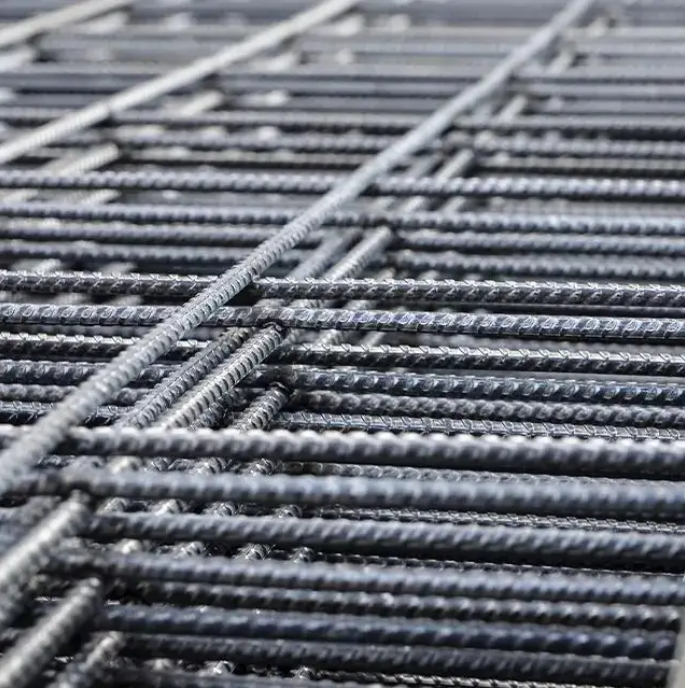

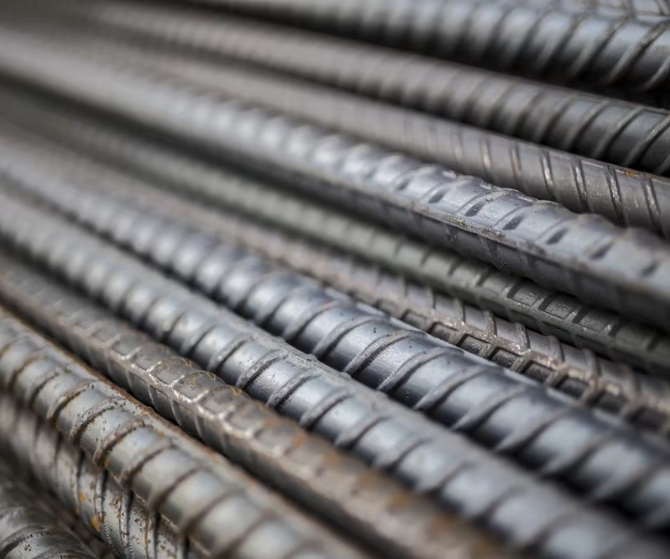
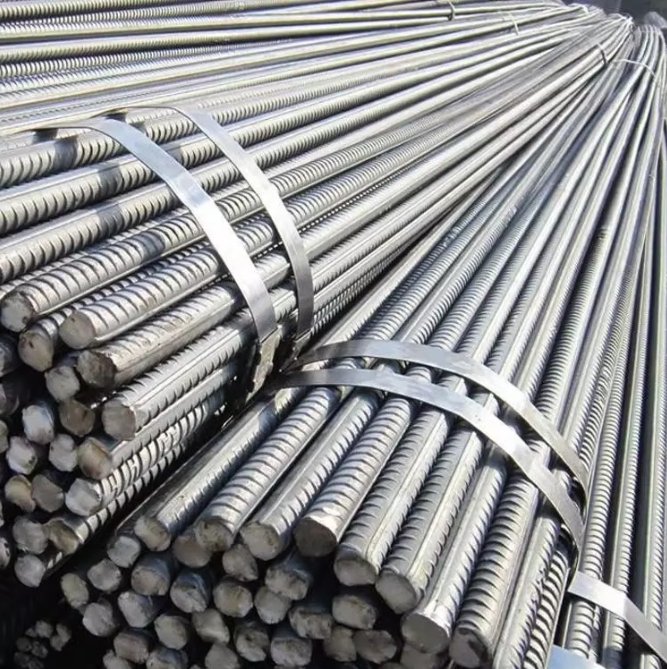
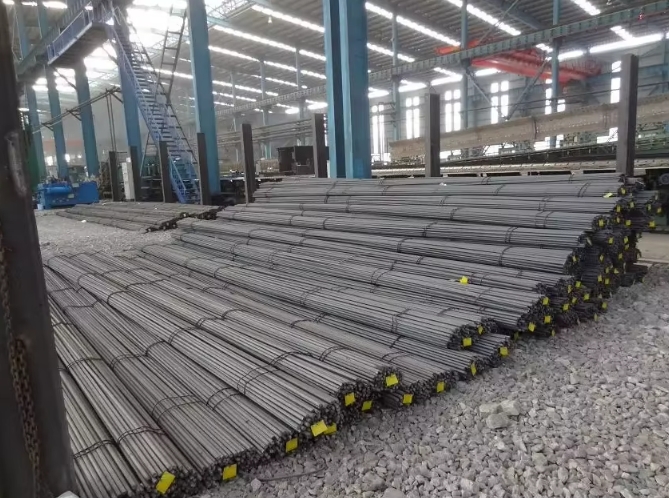
- Q: What is the role of steel rebars in pile foundation construction?
- The role of steel rebars in pile foundation construction is to reinforce the concrete and provide additional strength and structural integrity to the piles. The rebars are placed within the concrete to resist tension and compression forces, preventing cracking and ensuring the stability and durability of the pile foundation.
- Q: How can corrosion of steel rebars be prevented?
- Corrosion of steel rebars can be prevented through various methods such as applying protective coatings, using corrosion-resistant alloys, ensuring proper concrete cover, maintaining an effective drainage system, and implementing cathodic protection techniques. Regular inspections, proper maintenance, and prompt repairs also play a crucial role in preventing corrosion of steel rebars.
- Q: What is the purpose of using steel rebars in concrete structures?
- To enhance the overall strength and durability of concrete structures, steel rebars are employed. While concrete excels in compression, it lacks strength in tension. By integrating steel rebars into the concrete, the structure becomes capable of withstanding tensile forces and averting cracking or failure. Typically crafted from carbon steel, steel rebars possess robustness and high tensile strength. They are positioned within the concrete molds prior to pouring, thereby creating a reinforced concrete structure. When exposed to tensile forces, the concrete transfers the load to the steel rebars, which can effectively endure the stretching or pulling forces. This reinforcement aids in the equitable distribution of the load, warding off localized stress points and diminishing the likelihood of structural failure. In addition to providing tensile strength, steel rebars also assist in managing cracks in concrete structures. As concrete contracts and expands due to temperature fluctuations or drying, it becomes susceptible to cracking. The inclusion of steel rebars curbs the width and extent of these cracks, guaranteeing the structural integrity and prolonged lifespan of the concrete. Moreover, steel rebars heighten the resistance of concrete structures to seismic activity or other dynamic forces. The malleability of steel rebars enables them to absorb and dissipate energy during earthquakes or vibrations, thereby diminishing the risk of collapse. In essence, the purpose of incorporating steel rebars into concrete structures is to fortify and reinforce the concrete. This entails providing additional tensile strength, managing cracks, and augmenting the overall durability and resilience of the structure.
- Q: How are steel rebars marked for identification on construction sites?
- Steel rebars are typically marked for identification on construction sites using a variety of methods. The most common method is through the use of tags or labels that are attached to the rebars. These tags often contain important information such as the diameter, grade, and length of the rebar, as well as any additional specifications or codes that may be required. In addition to tags, rebars may also be marked using paint or ink. This can be done by either spraying or stenciling the required information directly onto the surface of the rebar. Paint or ink markings are often used for temporary identification purposes or when tags are not feasible. Another method of marking rebars is through the use of colored plastic or vinyl caps. These caps are placed on the ends of the rebars and are typically color-coded to indicate various characteristics such as the size or type of rebar. This method allows for quick and easy visual identification on the construction site. It is important to note that the specific method of marking rebars may vary depending on local regulations, project requirements, or the preferences of the construction company or engineer. The goal of these markings is to ensure that rebars can be easily identified and sorted during construction, helping to ensure proper installation and adherence to design specifications.
- Q: Are there any standards for the spacing of steel rebars in concrete?
- Yes, there are standards for the spacing of steel rebars in concrete. The purpose of these standards is to ensure structural integrity and durability of the reinforced concrete. The specific spacing requirements may vary depending on factors such as the type of structure, load conditions, and local building codes. In the United States, the American Concrete Institute (ACI) provides guidelines for rebar spacing in their publication ACI 318, "Building Code Requirements for Structural Concrete." According to ACI 318, the minimum spacing between parallel reinforcing bars should not be less than the maximum bar size or 1.5 times the diameter of the largest coarse aggregate used in the concrete, whichever is larger. For example, if the maximum bar size is 12mm and the largest coarse aggregate size is 20mm, the minimum spacing between the rebars should be 30mm (1.5 times the largest aggregate size). This ensures that there is adequate concrete cover around each rebar to protect it from corrosion and to provide sufficient bond strength. In addition to the minimum spacing, ACI 318 also provides guidelines for the maximum spacing of rebars. These guidelines consider factors such as the size and shape of the concrete member, the type of loading it will experience, and the required strength. The maximum spacing is typically determined to prevent excessive cracking and ensure proper distribution of loads throughout the structure. It is important to note that local building codes and regulations may have additional requirements or variations from the ACI standards. Therefore, it is always advisable to consult the relevant building codes or work with a qualified structural engineer to ensure compliance with the specific spacing requirements for steel rebars in concrete in your area.
- Q: What are the common defects or issues associated with steel rebars?
- Some common defects or issues associated with steel rebars include corrosion, improper bending or straightening, inadequate cover or concrete protection, insufficient anchorage or lap length, and incorrect spacing or alignment.
- Q: How do steel rebars affect the overall construction cost of residential buildings?
- Steel rebars can significantly impact the overall construction cost of residential buildings. While rebars add strength and durability to the structure, they also contribute to increased material and labor expenses. The cost of purchasing and installing rebars, along with associated construction techniques and reinforcing requirements, can raise the overall construction cost. However, considering the long-term benefits of reinforced structures, the investment in steel rebars is justified as it enhances the safety and longevity of residential buildings.
- Q: What are the common defects found in steel rebars?
- Steel rebars can exhibit several common defects. One such defect is surface cracks, which may arise from either the manufacturing process or mishandling and inadequate storage. These cracks have the potential to compromise the rebars' strength and integrity, thereby increasing the risk of failure under load. Another frequently encountered defect is corrosion, which occurs when rebars are exposed to moisture or chemicals. This corrosion weakens the rebars and diminishes their load-bearing capacity, rendering them more susceptible to failure. Bending and straightening defects are also commonly observed in steel rebars. Improper bending or straightening techniques can result in cracks, buckling, or uneven distribution of stress, thereby compromising the performance of the rebars. Inadequate welding or improper lapping of rebars can lead to subpar connections and reduced structural integrity. Welding defects, such as lack of fusion, incomplete penetration, or excessive porosity, weaken the rebars and heighten the risk of failure. Dimensional defects, encompassing variations in diameter, length, or straightness, can impact the fit and compatibility of rebars with other structural components. When rebars are not correctly aligned or fail to meet the required dimensions, it can lead to diminished structural strength and compromised performance. Lastly, improper heat treatment during the manufacturing process can result in internal defects like segregation, inclusions, or improper grain structure. These defects undermine the rebars' strength and render them more susceptible to fracture or failure under load. In summary, it is crucial to thoroughly inspect steel rebars for these common defects to ensure the structural integrity and safety of the construction projects in which they are employed.
- Q: Are steel rebars suitable for use in structures with high resistance to impact?
- Structures with high resistance to impact can generally make use of steel rebars. These rebars, also known as reinforcement bars, are made from steel and are commonly utilized in concrete structures to enhance their strength and durability. Steel possesses high tensile strength and the ability to absorb and distribute impact forces, making it an excellent material for reinforcement. In situations where impact is a concern, like in bridges, highways, or buildings located in earthquake-prone areas, steel rebars perform a critical function by providing additional strength and resistance. By incorporating rebars, the structure becomes capable of withstanding sudden impact loads and preventing catastrophic failures. Furthermore, engineers have the option to choose from various grades and sizes of steel rebars, ensuring that the appropriate type is selected based on the specific requirements of the structure. Higher grade rebars, such as Grade 60 or Grade 75, offer increased strength and ductility, making them particularly suitable for structures with high resistance to impact. It is worth noting that while steel rebars enhance the overall strength and impact resistance of a structure, other factors such as design, construction techniques, and maintenance also play significant roles in ensuring the structure's ability to withstand impact forces. Therefore, taking a comprehensive approach that encompasses all these factors is crucial when designing and constructing structures with high resistance to impact.
- Q: How do steel rebars affect the overall seismic performance of a structure?
- The overall seismic performance of a structure is greatly enhanced by steel rebars. Seismic events, like earthquakes, exert dynamic forces on buildings, causing them to vibrate and possibly collapse. However, incorporating steel rebars in concrete structures significantly enhances their ability to withstand these forces and ensures the safety of those inside. First and foremost, steel rebars strengthen a building's structure. By reinforcing the concrete, they increase its tensile strength since concrete alone is weak in tension. During an earthquake, the rebars help distribute the dynamic forces throughout the structure, preventing stress concentration in specific areas. This redistribution of forces minimizes the risk of localized failures and maintains the stability of the structure. Moreover, steel rebars improve the ductility of a structure. Ductility refers to a material's ability to deform under stress without breaking. During an earthquake, buildings undergo significant lateral movements and deformations. Steel rebars, with their high ductility, can elongate and stretch without fracturing, absorbing and dissipating the seismic energy. This property enables the structure to withstand larger ground motions and reduces the chance of sudden collapse. Furthermore, steel rebars enhance the overall resilience of a structure. Resilience refers to a building's ability to quickly recover its functionality after an earthquake. By reinforcing the concrete, steel rebars contribute to the post-earthquake repairability of the structure. They ensure that the building maintains its load-carrying capacity even after sustaining damage, which reduces downtime and allows for a faster recovery. Additionally, steel rebars serve as a warning sign for potential structural issues. During an earthquake, cracks may appear in the concrete, indicating areas of stress concentration. These cracks are often visible around the rebars, acting as an early indication of structural vulnerability. This visual warning allows for timely inspection and repair, preventing further damage and ensuring the long-term safety of the building. In conclusion, steel rebars play a crucial role in enhancing the overall seismic performance of a structure. Their inclusion in concrete greatly improves structural integrity, increases ductility, enhances resilience, and provides visual warnings of potential issues. By reinforcing the concrete, steel rebars ensure that buildings can withstand seismic forces, reducing the risk of collapse and ensuring the safety of occupants during earthquakes.
Send your message to us
TMT bar deformed bar reinforcing steel bar steel rebar
- Loading Port:
- Tianjin
- Payment Terms:
- TT OR LC
- Min Order Qty:
- 25 m.t.
- Supply Capability:
- 200000 m.t./month
OKorder Service Pledge
Quality Product, Order Online Tracking, Timely Delivery
OKorder Financial Service
Credit Rating, Credit Services, Credit Purchasing
Similar products
Hot products
